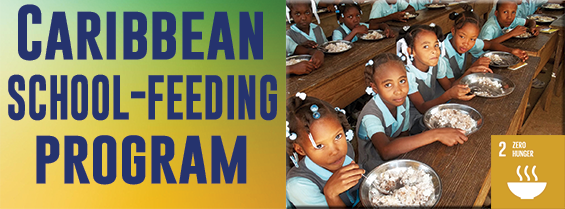
Full Stomachs and Better Nutrition equals increased levels and ability to learn! Daily nutritious meals: Boosting School Performance for the World's Littlest Learners and our Future Leaders.
The Caribbean School-Feeding Program supports Zero hunger and quality education for all students in the Caribbean by 2030, in support of The United Nations 17 Sustainable Goals To Transform Our World. The goal is to end hunger and ensure access by all people, in particular the poor and people in vulnerable situations, including infants, to safe, nutritious and sufficient food all year round and in particular, the Caribbean. The School-Feeding Program will work to provide funding for feeding programs in the Caribbean, but in particular, the nations of Saint Lucia, Suriname, Antigua and Barbuda, and Guyana.
Poverty can hinder a parent from sending their child to school. School meals provide a strong incentive to send them and keep them there, as it is often the only meal they receive in the day. This increases school attendance rates and reduces drop-out rates. Sadly, many parents in the Caribbean cannot afford to give their children a nutritious breakfast; therefore, these children often go to school hungry, with pain in their stomachs from lack of food.
When impoverished children go to school, they often leave home on an empty stomach. Providing school meals, especially breakfasts, can play a critical role in ensuring that children can learn. School meals allow children to focus on their studies rather than their stomachs and helps to improve students’ learning, cognitive functions, in-class behavior, academic performance and ability to concentrate.
The central problem concerning hunger in the Caribbean is not a lack of food, but rather the problems that the poorest members of society, especially children, face in gaining access to that food.
The Caribbean's experience shows that to deal with the major social challenges of extreme poverty and hunger, what is needed is a combination of economic growth, strong political commitment and decisive public action, in the form of public policies that have a high impact on the most vulnerable segments of the population. What is needed is more funding for School Feeding Programs.
Will you help us provide these children access to nutritious meals?
We know what nutrients children need in their diets to learn and thrive. We know where the hungriest and most undernourished live. We have a solid base of nutrition and public health research. And we have made serious investments of time and money to study ways to feed our children and provide them with healthy food options.
|
